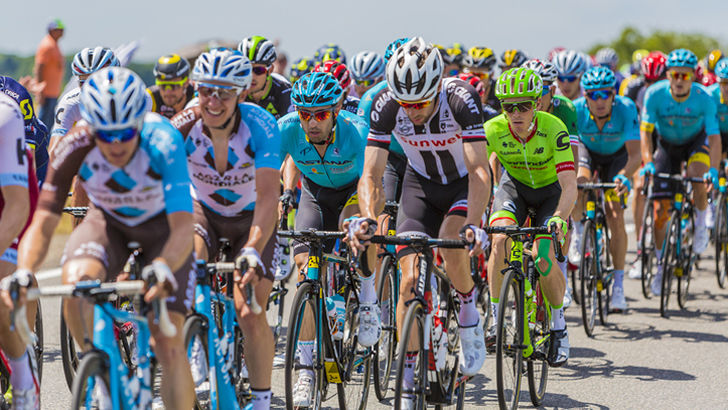The long road: what cycling has taught me about investing
By Craig Bingham
As a keen cyclist, one of the most exciting things about starting a new year is that a new season of Grand Tours is upon us!
Since becoming interested in road racing many years ago, I've often been struck by the similarities between this type of cycling and investment management.
The pep talk given to a cycling team before a big event starts would be much the same as the talk given to new clients by financial advisers about their investment portfolio.
It's all about the team
In a tour event, the best teams are made up of a combination of different specialists who can win different stages for the team as well as help the team leader maintain the team's position in the rankings.
Time trialists, climbers, domestiques and sprinters are all integral to the success of the team, and no single cyclist - no matter how good - could win the Tour de France or the Giro d'Italia by themselves.
Similarly, investors need a carefully chosen team of investment managers who perform best in different kinds of markets.
A well-performing Australian equities manager is important, but if there is a market downturn - which almost inevitably there will be at some point - then defensive assets such as fixed income, property or infrastructure will be key.
The event isn't won or lost on the first day
While the first day or two of a major cycling tour is important, it rarely determines who will end up on the podium on the last day.
Similarly, in investing, market performance over the short term is less important than what happens over the long term.
Shooting the lights out on the first day may feel good, but at the end of weeks of racing - or decades of investing - that first day will have little impact on the final result.

Being first isn't always the goal
Tour racing is made up of different stages. For some racers, winning a stage is the main aim.
But for the serious contenders, winning a stage is less important than coming in the top three or four in all stages and ultimately winning the whole event.
Likewise, investors should focus on the main game, which for most is their retirement.
Having a good week or year is nice, but it's better to perform well across many years than have one good year followed by three or four bad years.
There may be sacrifices
The main cycling teams always have a leader, the one cyclist they really want to see on the podium on the last day of the race.
And to help achieve this, individual team members may need to sacrifice their own stage win to ensure the leader maintains their position.
In investing, some fund managers take the approach that they may miss out on some of the absolute top returns, but they will also miss out on the full depths of a downturn - giving investors a 'smoother' ride. Minimising downside risk can be just as important as maximising returns.
There will be pain
Aching muscles, sore joints, bruises and grazes, sometimes even broken bones - these are all part of road cycling.
If you go into the race hoping to avoid pain, you're not going get very far.
In many ways, the same applies to investing. There are no returns without risks.
The level of risk is up to each individual investor, but they do need to be prepared for some downturns. In cycling parlance, this is the time to grit your teeth and keep going.
Giving up, selling out or changing tack halfway through could mean missing out on the gains at the end.
Investing isn't just about money. Like cycling, it's also about patience, determination and trust in the team.
Bennelong Funds Management sponsors an Australian domestic cycling team.
Get stories like this in our newsletters.


